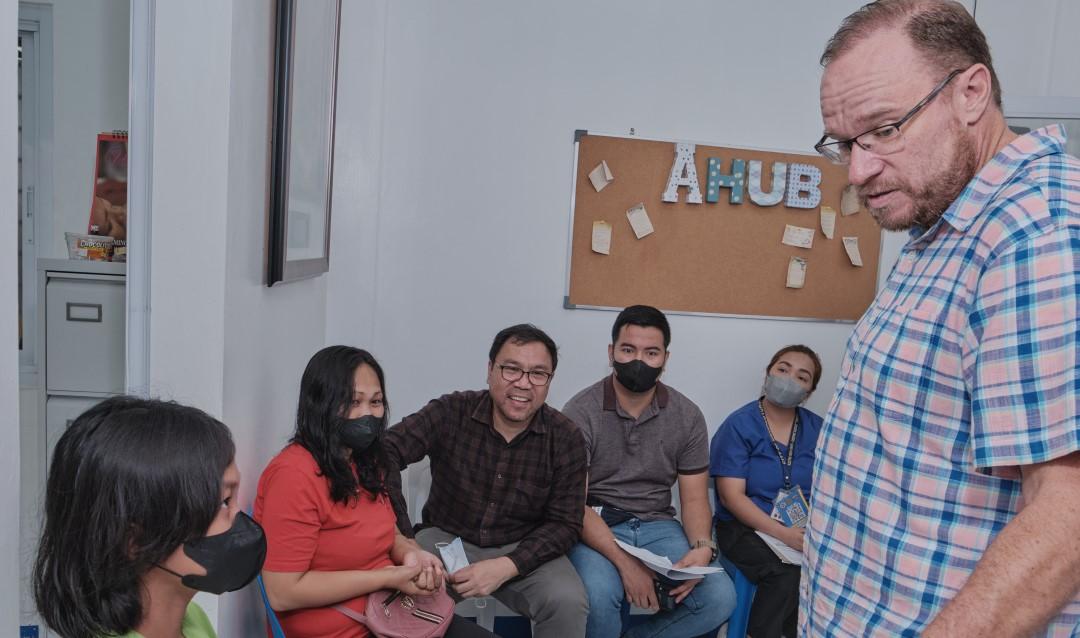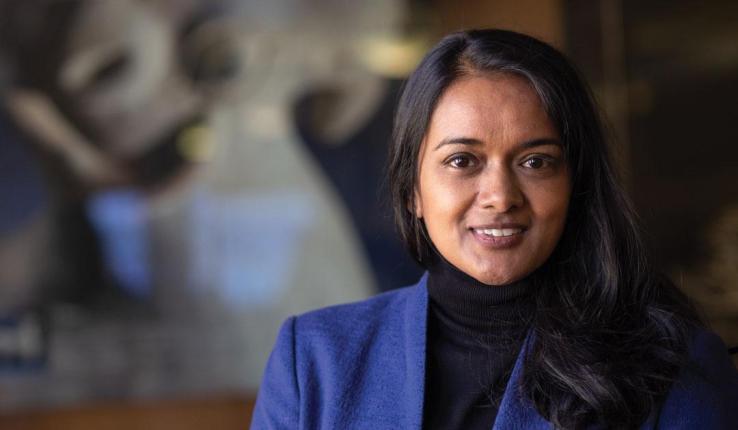In the ongoing battle against tuberculosis (TB) in the Philippines, a project led by students from the Office of Creative Inquiry’s Global Social Impact Fellowship (GSIF) is utilizing phones to send text alerts to patients being treated for the disease, reminding them to take their medications.
The project, “Using Low-Tech Phones for Tuberculosis Treatment Adherence,” in partnership with organizations in the Philippines, represents a step forward in the fight against TB, which claims 70 lives per day in the country. Although treatable with medication, TB poses challenges due to its lengthy treatment duration and the strong side effects often experienced by patients. These issues commonly lead to patients skipping treatments or discontinuing them altogether, which exacerbates the disease and increases its lethality.
The project initially began as a computer science and business (CSB) capstone project in 2023, under the faculty mentorship of Sean Vassilaros. The project continues this semester with two teams, one in the CSB capstone course and another in the GSIF program. The CSB team will concentrate on data analysis and coding aspects, while the GSIF team will focus on expanding community outreach and fostering partnerships for implementation.
Vassilaros, an adjunct professor of computer science and business, represented the team members during fieldwork in Manila in July 2023 and field-tested their initial prototype—a text-based system for tracking medication—with actual patients and practitioners. Vassilaros shared that the initiative began with in-depth planning and collaboration with teams in the Philippines to pinpoint specific needs.
“Our system allows TB patients to easily report their daily medication, enabling swift follow-up by local healthcare professionals for those missing doses,” he explained.
After gaining insights during fieldwork in the Philippines, the team adopted a more user-friendly SMS platform, which is a text messaging component available on most telephones.
“We also discovered that our young target audience preferred English over Tagalog for medical terms, prompting us to adjust our strategy,” he further noted.
The 2023 team comprised three students, all majoring in computer science and business, set to graduate in 2024: Anushka Dania, Andrew Pearce, and Michael Ngoga.
Dania, focusing on strategy and operations, highlighted the project's balance between data collection and user-friendliness.
"We aimed to design a system that was informative yet not overwhelming for patients," Dania commented.
Pearce saw this project as the culmination of his educational experience at Lehigh.
“This project held great meaning for me. We developed an application with real-world impact potential!” Pearce shared with enthusiasm.
The project's scope, however, extends beyond technological innovation alone. Vassilaros emphasizes the importance of patient empowerment, improved healthcare delivery and data privacy. The team's dedication to these aspects showcases the project's comprehensive approach to healthcare.
Karen Dalawangbayan is the technical team lead at the United States Agency for International Development (USAID)-funded TB Platforms project in the Philippines. Highlighting the project's critical importance, Dalawangbayan underscores its objectives in the local health context.
"Our main goal is to ensure a complete 9-month treatment for TB patients, particularly those with drug-resistant strains," she explained. "This is crucial because incomplete treatment can lead to a deterioration of the patient’s condition and, in some cases, even death."
Dalawangbayan added that the collaboration with Lehigh brings a practical, low-cost solution to this challenge, potentially increasing the treatment success rate significantly.
“The project's significance for the Philippines becomes evident when considering it as one of the highest TB burden countries globally. The challenge lies not only in treating TB, but also ensuring treatment adherence,” she said.
Looking ahead to 2024, Vassilaros and the team have plans to expand the project into a broader social impact initiative, aiming to enhance partnerships with local organizations in the Philippines to reach more people. With the capstone and GSIF teams working collaboratively, Vassilaros believes this dual-team approach will be instrumental in successfully bringing the project to market and implementing the technology throughout the Philippines.
Read more stories on the Lehigh News Center.
Story by Haidan Hu.





